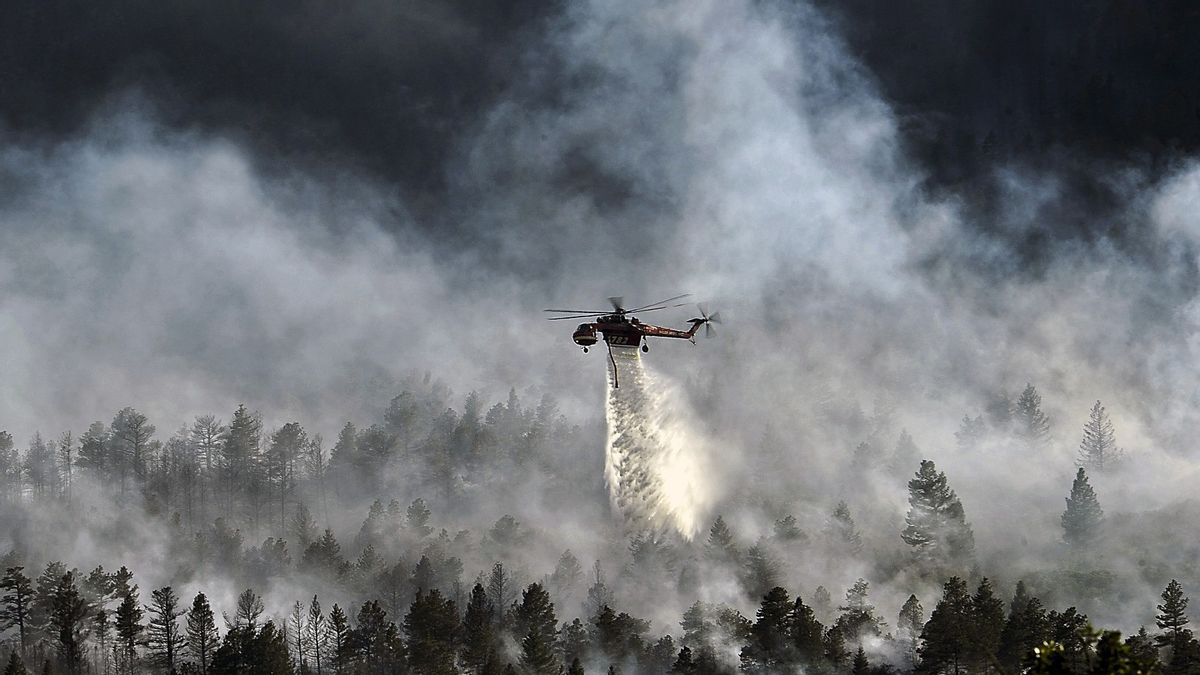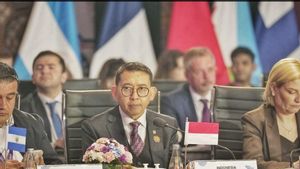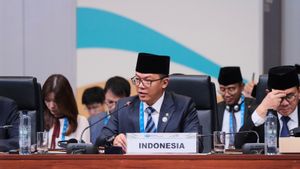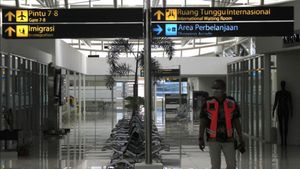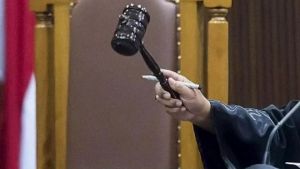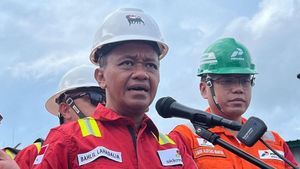JAKARTA - Forest and land fires (Karhutla) are still a challenge facing the Indonesian government going forward. This problem occurs almost every year.
Director General of Forest and Land Fire Control of the Ministry of Environment and Forestry (KLHK) Raffles Panjaitan explained that anticipation of forest and land fires in 2020 will be more in the prevention sector. Raffles said, the problem of forest and land fires should be considered in anticipation, even though currently a number of areas in Indonesia were hit by floods.
A number of ministries have also held coordination meetings at the State Secretariat (Setneg) office to determine what steps should be taken in 2020 and beyond, in accordance with President Joko Widodo (Jokowi) directives.
"Later, the handling of fires must prioritize prevention. It has been carried out 5 years earlier and the results are very good, yes. From 2012, even though in 2019 there was a slight increase in fire cases," said Raffles, when met at the Manggala Wanabakti Building, Gatot Subroto, Central Jakarta, Monday, January 6.
The budget needed for prevention, said Raffles, would be the same as last year. However, 75 percent of the budget allocation will be used for prevention. "In the past, there were 60 percent prevention. Now 15 to 75 percent is added for prevention. Now the remaining 25 percent," he said.

The handling of forest and land fires in 2019 experienced a number of obstacles, including the El Nino phenomenon, as well as the lack of water infrastructure. Learning from these obstacles, the Ministry of Environment and Forestry is preparing to anticipate 2020 forest and land fires with weather modification technology (TMC).
"Now we aim for prevention. Last year there was no TMC, now we put it in. Compared to us renting an airplane, the price is more expensive," he said.
According to Raffles, the TMC operation by producing artificial rain is considered more effective for wetting hotspots, rather than using water bombing via helicopters.
"That later, according to the direction of Minister Siti Nurbaya, TMC is not carried out waiting to dry completely. However, even in March this month if Riau or West Kalimantan looks dry, we will issue TMC. So that the rain is wet, now it rains. It's millions of liters compared to us bombing with helicopters. That's a little coverage. Even though the costs are almost the same, "he explained.
Raffles explained, for 2020 the Ministry of Environment and Forestry will prioritize provinces which in 2019 will experience a widening of hotspots.
"Riau, West Kalimantan, the Singkawang area, Kubu Raya, South Sumatra Jambi, are priority provinces. We observe almost the same all provinces. We are an integrated patrol movement in our centers with, the Police, Babinsa, Bhabinkamtibmas, Village Heads, and also the community, "he said.
The English, Chinese, Japanese, Arabic, and French versions are automatically generated by the AI. So there may still be inaccuracies in translating, please always see Indonesian as our main language. (system supported by DigitalSiber.id)
